Industrial Technology Department
The Department of Industrial Technology is designed to offer students an exploratory and developmental experience.
Students are exposed to a variety of courses that give some insight into the materials, methods, processes and careers related to technology. This is reinforced by making the community an extension of the school and classroom. Characteristics which are stressed are safety, accuracy, dependability, promptness, care of equipment, interest in technical fields, cooperation, and the importance of planning and following instructions.
Industrial Technology prepares students to function as knowledgeable citizens in our increasingly technological world.
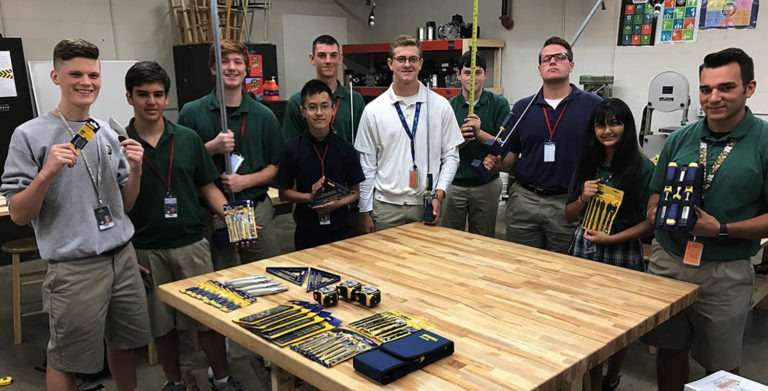
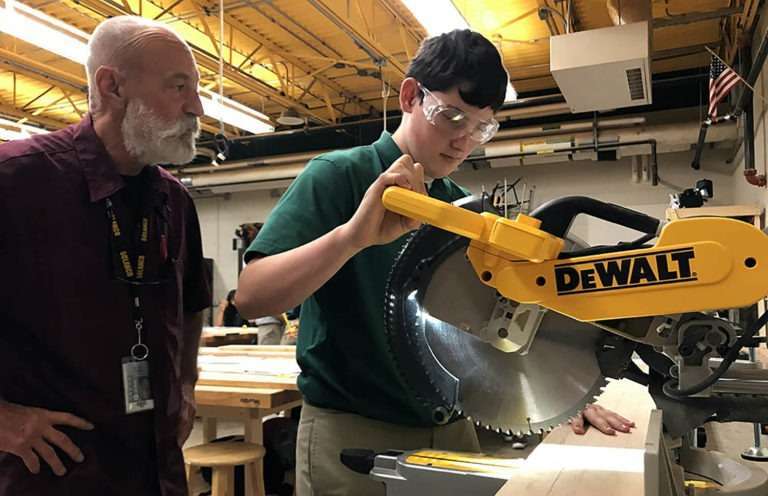

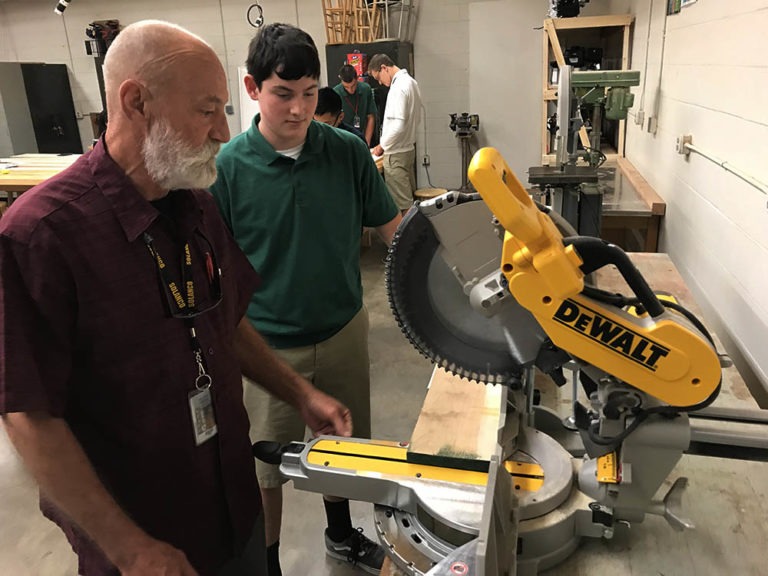
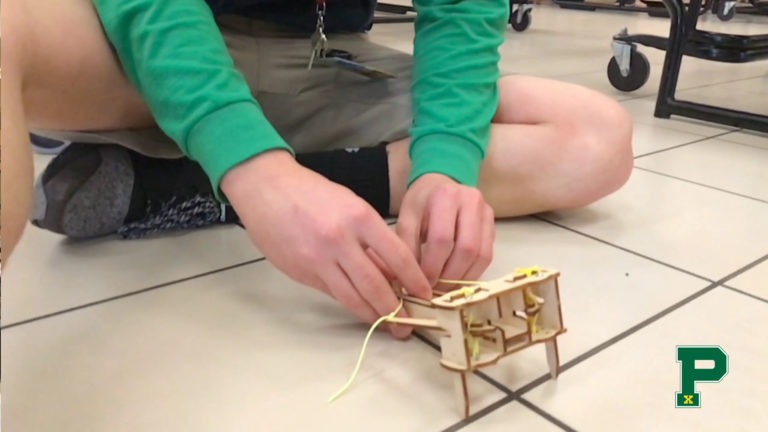
Course Offerings
Small Engines
Machine Woodworking
Advanced Woods—Furniture and Cabinetmaking
Building Construction
Architectural Drafting
Engineering Design I
Engineering Design II
Robotics
Industrial Technology Teachers
Stories from Industrial Technology classes
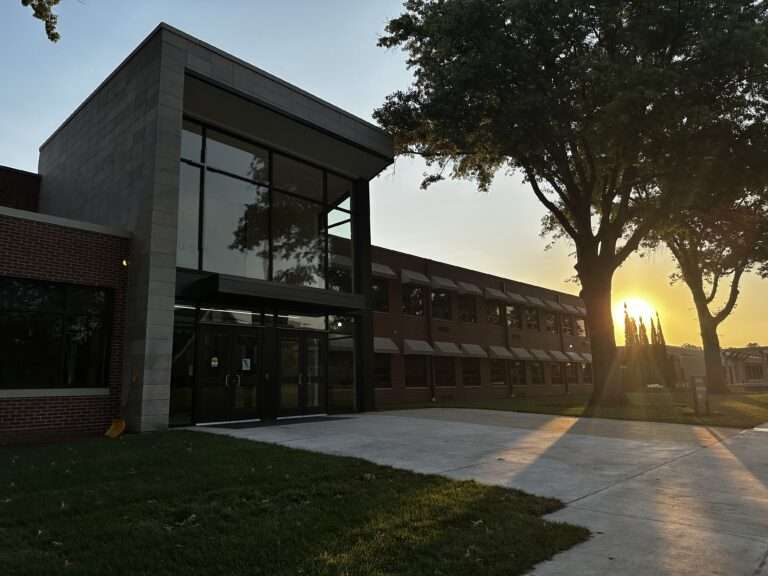
New teachers this school year at Pius X
Fr. Dale Allder ’13 Fr. Dale Allder was born and raised in Lincoln. He was a member of St. Peter parish growing up, and attended
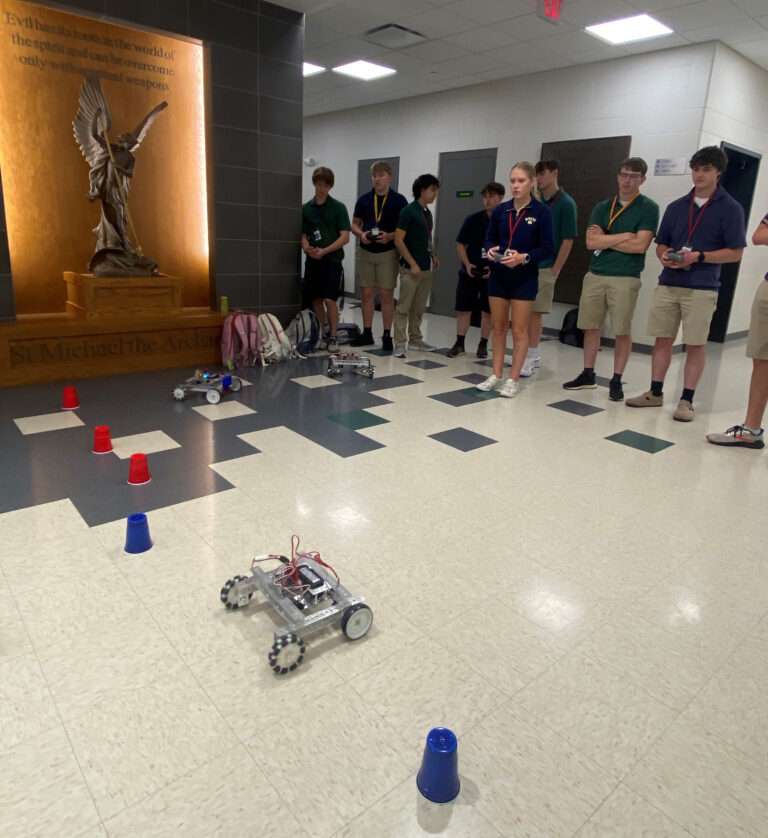
A robotic venture around the track in Engineering
Students in Engineering II recently constructed robotic vehicles and have been learning to control them with two methods.
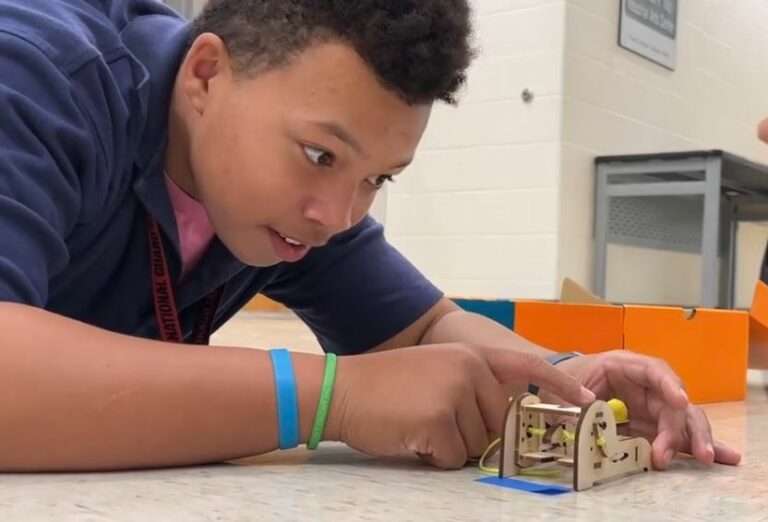
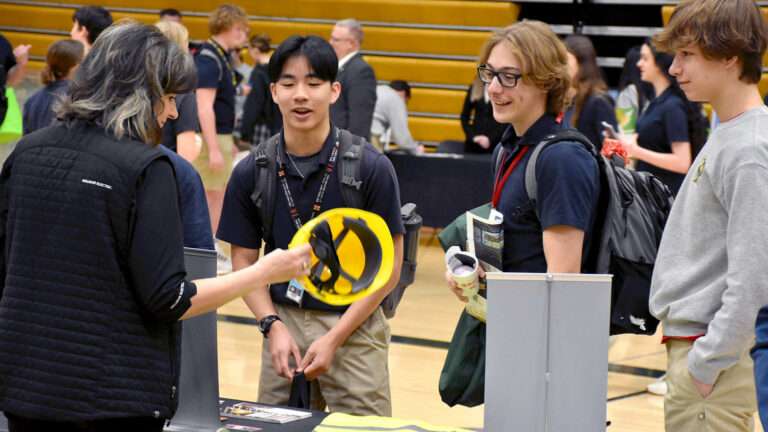
Students and vendors talk post-high school opportunities
Hundreds of Pius X students and dozens of local vendors talked shop Tuesday morning about the many opportunities available for students beyond – and maybe




